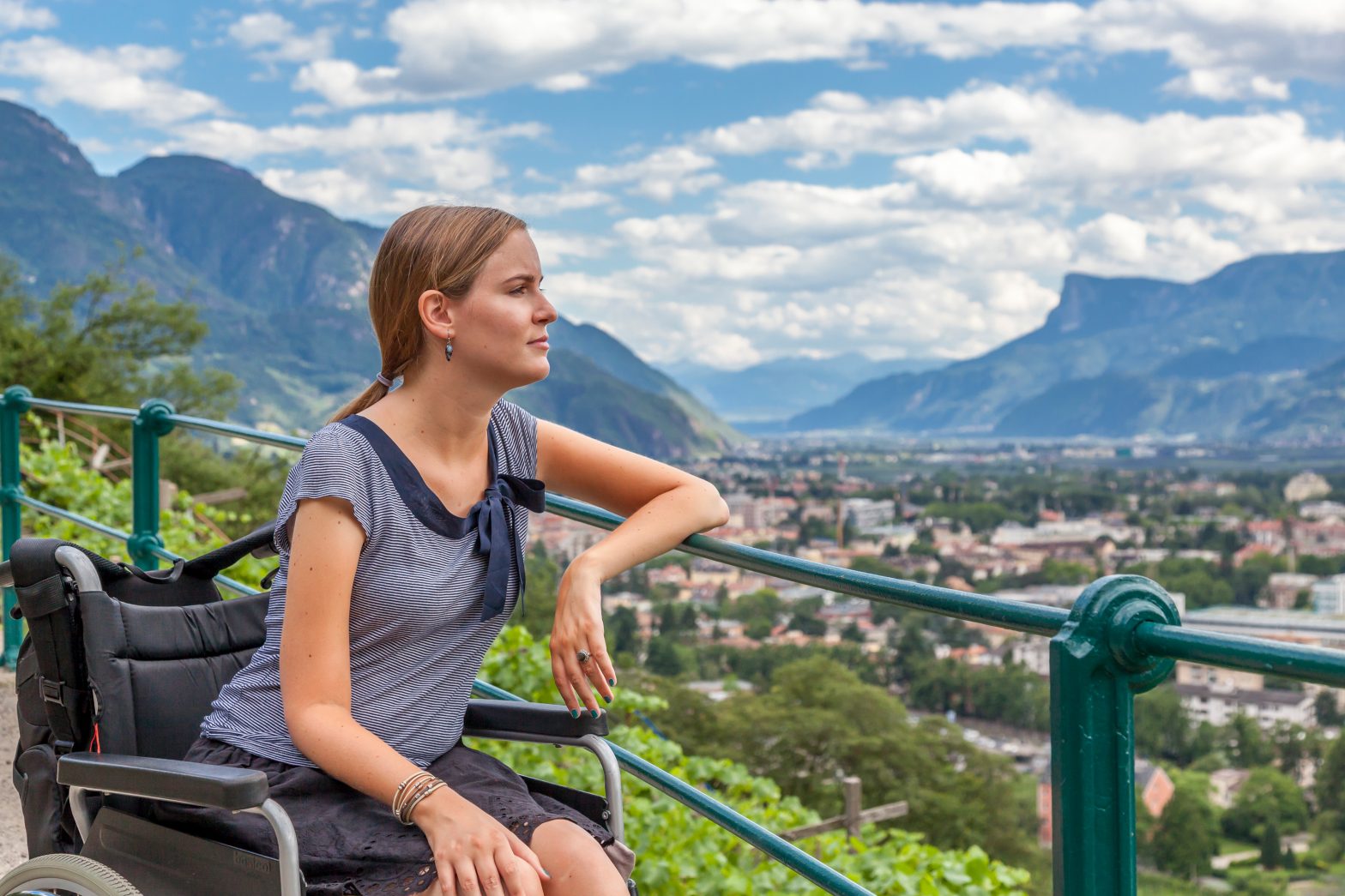The story of Bibi
Hi, I’m Bibi, 32 years old, from Austria (Europe) and was diagnosed with ALS (Amyotrophic Lateral Sclerosis) at the age of 18.
My first symptoms started to show in 2005 when I was 16 years old. I noticed a weakness in my feet on the way to school, I couldn’t lift my toes off the ground very well anymore. Also my fingers began to tremble at that time and I finally went to see the first doctors (of many more to come). My boyfriend, with whom I came together in 2004, witnessed how I got a weird gait pattern, saw my first difficulties climbing stairs & that I was exhausted quickly. It was in summer 2006, in the year I left school (I was 18 by then), that I was diagnosed with ALS – 1.5 years after first symptoms.
The way I got my diagnosis was unprofessional. I discovered the letters „ALS“ on one of my hospital discharge papers. I was astonished because nobody’s been telling me there was the slightest idea of a diagnosis so far. I searched the web to find out more – and of course was shocked.
ALS is a terminal progressive disease of the nervous system that leads to the death of motoneurons (nerve cells that control muscles). The muscles that no longer receive a nervous signal from the brain weaken & waste away, which leads to gradually being paralyzed. ALS patients lose their strength and the ability to speak, eat, move & breathe, no cure is known. Only 10% survive longer than 10 years, only 1% is younger than 25 years at onset – and I belong to both categories. This type is called „juvenile ALS“ which is more likely to have a slower progression.
Since 2008 I’m using a wheelchair due to increasing muscle-weakness. The first 2 to 3 years were not easy, I didn‘t want anybody to see me, I felt ashamed & inferior – not only because of the chair. This led me to isolate myself and culminated in social anxiety, which lasted 2 years. After that I was slowly able to come to terms with the situation, became more confident and got used to my wheelchair. Today I see my wheelchair as one of the most important aids, which lets me participate in life and allows me to travel.
Nature & traveling have become more important to me since my ALS diagnosis. I think a regular change of scenery is important for mental health, no matter how hard the preparations can sometimes be. The further the disease progresses, the more I want to see something of the world and experience as much as possible while it’s still somehow feasible. I want to seize every opportunity and enjoy the moments.
Despite the progressive paralysis I’m still working in my father’s advertising agency since 13 years now. Working with computer and mouse has become difficult, yet it’s still possible to somehow compensate for the lack of strength.
On my Instagram-account (@bibi_wheelchair_traveller) I highlight the disease ALS, raise awareness for it and tell my story. Also I share my thoughts on disease and disability and present our way of wheelchair-traveling.
